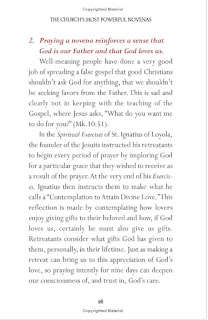The Eucharistic Pilgrimage continues in 2025:
A pilgrimage is “the simultaneous movement of the feet and the soul”—a journey made both externally and internally. The pilgrim travels to a location of spiritual significance, stepping outside of themselves in order to encounter God in places where he has revealed himself. This action mirrors the interior journey of the pilgrim, who uses this experience to draw closer to Our Lord and seek him more intentionally.
The value of a pilgrimage is not in the distance traveled but in the disposition of our own hearts and the zeal with which we seek God. Many saints have had life-changing experiences while on pilgrimage, and the practice has been a part of Christianity from the beginning.
The Pocket Guide to the Mass by Michael Dubruiel would be a good resource for this time.
A Pocket Guide to the Mass walks you through the biblical basis of prayers, the meaning behind gestures, and a brief overview of the spirituality that brings Catholics together for Eucharist each week.
Reenergize your time at Mass or help those who are new or returning to the Church with this quick and insightful overview. Rediscover the fullness of the Mass today!







